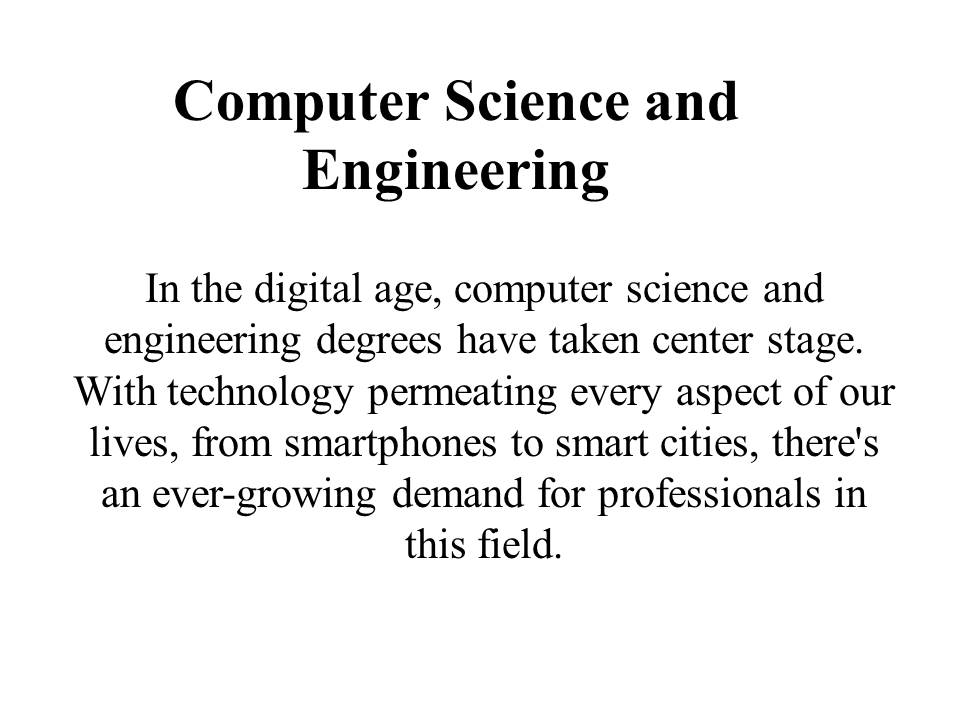Introduction
Selecting the best college degree in the world is a decision that can shape your future in profound ways. It’s a decision that combines your passions, interests, and career aspirations, while also considering market demand and future job prospects. In this 3000-word post, we will embark on a journey to explore the intricacies of choosing the best college degree in today’s ever-evolving world.
The Changing Landscape of Education
In the past, a college degree was often seen as a guaranteed path to success. However, the landscape of education and the job market have evolved significantly in recent years. Factors such as technological advancements, economic fluctuations, and changing societal norms have transformed the way we perceive the value of a college degree.
Today, the best college degree isn’t just about the highest earning potential; it’s about finding a balance between personal fulfillment, job security, and societal contributions. With this perspective in mind, let’s delve into some of the degrees that are highly sought after and explore the reasons behind their popularity.
- Computer Science and Engineering
In the digital age, computer science and engineering degrees have taken center stage. With technology permeating every aspect of our lives, from smartphones to smart cities, there’s an ever-growing demand for professionals in this field. Graduates with degrees in computer science and engineering find themselves at the forefront of innovation, developing software, hardware, and systems that shape our future.
Reasons to consider a degree in Computer Science and Engineering:
- High Demand: Technology companies, startups, and established organizations are constantly seeking talent to fill positions related to software development, data analysis, artificial intelligence, and cybersecurity.
- Salary Potential: Graduates in this field often command high starting salaries, making it a lucrative choice.
- Versatility: Computer science and engineering degrees offer versatility, enabling graduates to work in various industries, from healthcare to finance.
- Medicine and Healthcare
The healthcare industry is another sector where job opportunities are abundant. A degree in medicine or healthcare-related fields can lead to careers as doctors, nurses, pharmacists, and various other healthcare professionals. The global aging population and advances in medical technology contribute to the sustained demand for qualified healthcare workers.
Reasons to consider a degree in Medicine and Healthcare:
- Job Security: Healthcare professionals are always in demand, and the industry is relatively recession-proof.
- Sense of Purpose: A career in healthcare allows you to make a meaningful impact on people’s lives, which can be highly rewarding.
- Career Advancement: Many healthcare professions offer opportunities for specialization and career advancement.
- Business Administration and Management
A degree in business administration or management equips graduates with the knowledge and skills to lead organizations, manage resources, and make strategic decisions. Business professionals are instrumental in driving economic growth and innovation, making this degree a popular choice for those with an entrepreneurial spirit.
Reasons to consider a degree in Business Administration and Management:
- Entrepreneurial Opportunities: Business graduates often start their own companies and become entrepreneurs, creating jobs and contributing to economic development.
- Versatility: Business skills are transferable across industries, giving graduates flexibility in their career choices.
- Networking: Business programs often provide extensive networking opportunities, which can be invaluable for career growth.
- Environmental Science and Sustainability
As concerns about climate change and environmental degradation grow, so does the demand for professionals with expertise in environmental science and sustainability. Graduates in this field work on finding solutions to pressing global issues, such as reducing pollution, conserving natural resources, and mitigating the impact of climate change.
Reasons to consider a degree in Environmental Science and Sustainability:
- Global Relevance: Environmental issues are at the forefront of global discussions, making this field relevant and impactful.
- Sustainability: Graduates can contribute to creating a more sustainable future by working on conservation projects, renewable energy initiatives, and policy advocacy.
- Interdisciplinary Approach: Environmental science draws on knowledge from various disciplines, offering a holistic and intellectually stimulating educational experience.
- Data Science and Analytics
Data science and analytics have emerged as critical fields in the digital age. Organizations are collecting vast amounts of data, and skilled professionals are needed to analyze this data to extract valuable insights. Data scientists and analysts play a pivotal role in informing decision-making processes across industries.
Reasons to consider a degree in Data Science and Analytics:
- High Demand: The demand for data professionals continues to surge as data-driven decision-making becomes increasingly essential.
- Diverse Applications: Data science and analytics are applied in diverse fields, including marketing, healthcare, finance, and government.
- Problem Solving: Graduates in this field use data to solve complex problems and make informed decisions, which can be intellectually satisfying.
- Education
Teaching is a noble profession that shapes future generations. With an education degree, you can become a teacher or educator, helping students develop critical skills and knowledge. In addition to traditional classroom teaching, education professionals are also involved in curriculum development, educational technology, and educational policy.
Reasons to consider a degree in Education:
- Impact on Society: Teachers and educators have a profound impact on the lives of students and society as a whole.
- Job Stability: Despite changes in education delivery methods, the need for qualified teachers remains constant.
- Continuous Learning: Education professionals often engage in lifelong learning, staying updated with the latest educational strategies and technologies.
- Psychology
The field of psychology focuses on understanding human behavior, cognition, and emotions. Graduates in psychology have a wide range of career options, including clinical psychology, counseling, research, and organizational psychology. The ability to understand and work with people is valuable in numerous settings.
Reasons to consider a degree in Psychology:
- Human Understanding: Psychology provides insights into human behavior and mental processes, which can be applied in various professions.
- Diverse Career Paths: Psychology graduates can work in clinical settings, schools, corporations, and research institutions.
- Empathy and Communication Skills: The study of psychology enhances empathy and communication skills, which are valuable in personal and professional relationships.
- Engineering (Various Specializations)
Engineering encompasses a wide range of specializations, from civil and mechanical engineering to aerospace and biomedical engineering. Engineers design, develop, and maintain systems and infrastructure critical to modern society. The choice of engineering discipline depends on personal interests and career goals.
Reasons to consider a degree in Engineering:
- Innovation: Engineers are at the forefront of innovation, creating new technologies and improving existing systems.
- Problem Solving: Engineering involves solving complex problems and addressing real-world challenges.
- Global Impact: Engineers contribute to projects that have a global impact, such as building sustainable infrastructure and advancing healthcare technologies.
Choosing the Best College Degree for You
Now that we’ve explored some of the popular college degrees, it’s essential to understand that the best degree for you depends on various factors, including your interests, skills, values, and long-term goals. Here are some steps to help you make an informed decision:
- Self-Reflection: Take time to reflect on your interests, strengths, and passions. What subjects or activities excite you the most? Consider your long-term career goals and how they align with your interests.
- Research Career Paths: Explore potential career paths related to the degrees you’re considering. Look into job prospects, salary ranges, and the daily responsibilities of professionals in those fields.
- Consult with Professionals: Reach out to professionals who are working in your desired field. They can provide valuable insights into the industry and offer guidance on educational requirements.
- Consider Market Demand: Research the current and future demand for professionals in your chosen field. Is there a growing need for these skills? Are there potential job openings in your desired location?
- Evaluate Educational Institutions: Research colleges and universities offering programs in your chosen field. Consider factors such as program reputation, faculty expertise, and available resources.
- Financial Planning: Think about the cost of education and how you plan to finance your degree. Explore scholarships, grants, and financial aid options.
- Internships and Experience: Whenever possible, gain practical experience through internships, part-time jobs, or volunteer work in your chosen field. Real-world experience can be invaluable.
- Networking: Connect with current students, alumni, and professionals in your desired field. Networking can open doors to job opportunities and provide valuable insights.
- Adaptability: Keep in mind that the job market is continually evolving. Choose a degree that equips you with transferable skills and the ability to adapt to changing circumstances.
Conclusion
Selecting the best college degree in the world is a personal journey that requires careful consideration of your interests, skills, and aspirations. While some degrees may be more popular or in-demand than others, the key to success lies in aligning your education with your passions and long-term goals.
Ultimately, the best college degree for you is one that empowers you to make a positive impact on the world, brings you personal fulfillment, and provides opportunities for growth and development. So, take your time, explore your options, and embark on a path that resonates with your unique journey in life.

